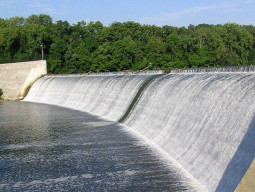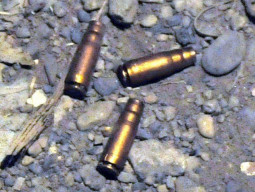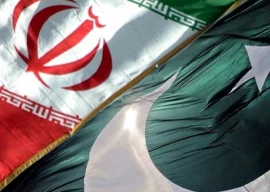The Gwadar conundrum
Inwards investment, stability, developed economy, infrastructure make freeports, we hope that this all materialises.
Prime Minister Nawaz Sharif (C) talking to official media in Gwadar with Balochistan Chief Minister Dr Abdul Malik Blaoch on his left and COAS Raheel Sharif on his right. PHOTO: PID
A glance at a map of Pakistan might suggest to the average person that the port of Gwadar is the right idea in the wrong place. It has poor road links with the rest of the country, no rail link and a vast hinterland to the north that is thinly populated, offering next to nothing by way of market opportunities. That Pakistan would benefit from a blue-water port on the Indian Ocean is beyond doubt, but whether it is ever going to benefit from Gwadar remains a very open question. Any cargo unloaded there needs to make the ruinously expensive road transfer to Karachi, along roads that are poorly constructed and maintained, and vulnerable to attack by terrorists or plain old-fashioned highway robbery. The deal with Singapore to manage the port foundered and it is now to be in large part managed by the Chinese, who bankrolled most of the building anyway. Gwadar is a reality that is not going away and thus receives occasional visits from the great and the good who express their belief that Gwadar is the key to the prosperity and development of Balochistan.
Thus it was that the prime minister paid a visit on April 24, along with the chief of army staff. He spoke of the ‘neglect’ of the project by previous administrations, of the possibility — long mooted — of a rail link to Kashgar in southern China and the creation of a new security force that will be tasked to protect the Chinese workers on several projects in the region. The prime minister announced the building of a 300-bed hospital and a state-of-the-art airport. Gwadar, he said, would be modelled on the freeports exemplified by Dubai, Hong Kong and Singapore. Fine words do not a freeport make. Inwards investment, stability, a developed local economy and reliable infrastructure do and we hope that all materialises. Gwadar remains in large part an unfulfilled dream, for such initiatives would go a long way towards realising Gwadar’s — and indeed Pakistan’s — potential.
Published in The Express Tribune, April 27th, 2014.
Like Opinion & Editorial on Facebook, follow @ETOpEd on Twitter to receive all updates on all our daily pieces.


















And so the truth finally and belatedly is recognised. Gwadar Port which was touted as the next Dubai was nothing more than a ploy hatched by the Pakistani Military to get the long suffering civilians of Pakistan to foot the bill to provide a bolt hole for the Pakistan Navy that was as far away from India as Pakistan’s coastline would permit while simultaneously consolidating the military occupation of Balochistan and spinning some money for the Military Brass via land speculation.
Regards talk of “a rail link to Kashgar in southern China”, this should be taken with a freight-car load of salt bearing in mind the slow motion pace of the effort to reopen the strategic Karakoram Highway (KKH). Here it may be recalled that traffic on the KKH has been disrupted since January 2010 when a landslide dammed the Hunza River and submerged the KKH. The KKH will only reopen in 2017, a full 7 years after it was shut.
Royal Lip Service for Balochistan - Good luck
Nice Editorial. Gwadar is akin to the IP ... doesn't take very much objective analysis to reveal gaping holes in the project. Gwardar is touted as important to China -- but China's big demand is Arab/Iranian oil/gas .. once it's put on a boat why in the World would China want it offloaded in Pakistan to be sent long distance on lousy roads which are closed during the winter months? You offload next to your refinery -- that's in China close to their own ports.